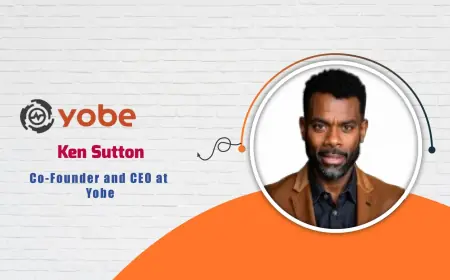Kiranbir Sodhia, Senior Staff Engineering Manager at Google - AITech Interview
Explore expert advice for tech leaders and organizations on enhancing DEI initiatives, with a focus on the ethical development and deployment of AI technologies.

How do biased AI models perpetuate diversity disparities in hiring processes, and what role do diverse perspectives play in mitigating these biases in AI development?
Companies that already lack representation risk training their AI models on the skewed data of their current workforce. For example, among several outlets, Harvard Business Review has reported that women might only apply to a job if they have 100% of the required skills compared to men who apply when they meet just 60% of the skills. Suppose a company’s model was built on the skills and qualifications of their existing employees, some of which might not even be relevant to the role. In that case, it might discourage or screen out qualified candidates who don’t possess the same skillset.
Organizations should absolutely use data from current top performers but should be careful not to include irrelevant data. For example, how employees answer specific interview questions and perform actual work-related tasks is more relevant than their alma mater. They can fine-tune this model to give extra weight to data for underrepresented high performers in their organization. This change will open up the pipeline to a much broader population because the model looks at the skills that matter.
In your view, how can AI technologies be leveraged to enhance, rather than hinder, diversity and inclusion efforts within tech organizations?
Many organizations already have inherent familiarity biases. For example, they might prefer recruiting from the same universities or companies year after year. While it’s important to acknowledge that bias, it’s also important to remember that recruiting is challenging and competitive, and those avenues have likely consistently yielded candidates with less effort.
However, if organizations want to recruit better candidates, it makes sense to broaden their recruiting pool and leverage AI to make this more efficient. Traditionally, broadening the pool meant more effort in selecting a good candidate. But if you step back and focus on the skills that matter, you can develop various models to make recruiting easier.
For example, biasing the model towards the traditional schools you recruit from doesn’t provide new value. However, if you collect data on successful employees and how they operate and solve problems, you could develop a model that helps interview candidates to determine their relevant skills. This doesn’t just help open doors to new candidates and create new pipelines, but strengthens the quality of recruiting from existing pipelines.
Then again, reinforcing the same skills could remove candidates with unique talent and out-of-the-box ideas that your organization doesn’t know it needs yet. The strategy above doesn’t necessarily promote diversity in thought.
As with any model, one must be careful to really know and understand what problem you’re solving and what success looks like, and that must be without bias.
To Know More, Read Full Interview @ https://ai-techpark.com/aitech-interview-with-kiranbir-sodhia/
Related Articles -
What's Your Reaction?
 Like
0
Like
0
 Dislike
0
Dislike
0
 Love
0
Love
0
 Funny
0
Funny
0
 Angry
0
Angry
0
 Sad
0
Sad
0
 Wow
0
Wow
0












































